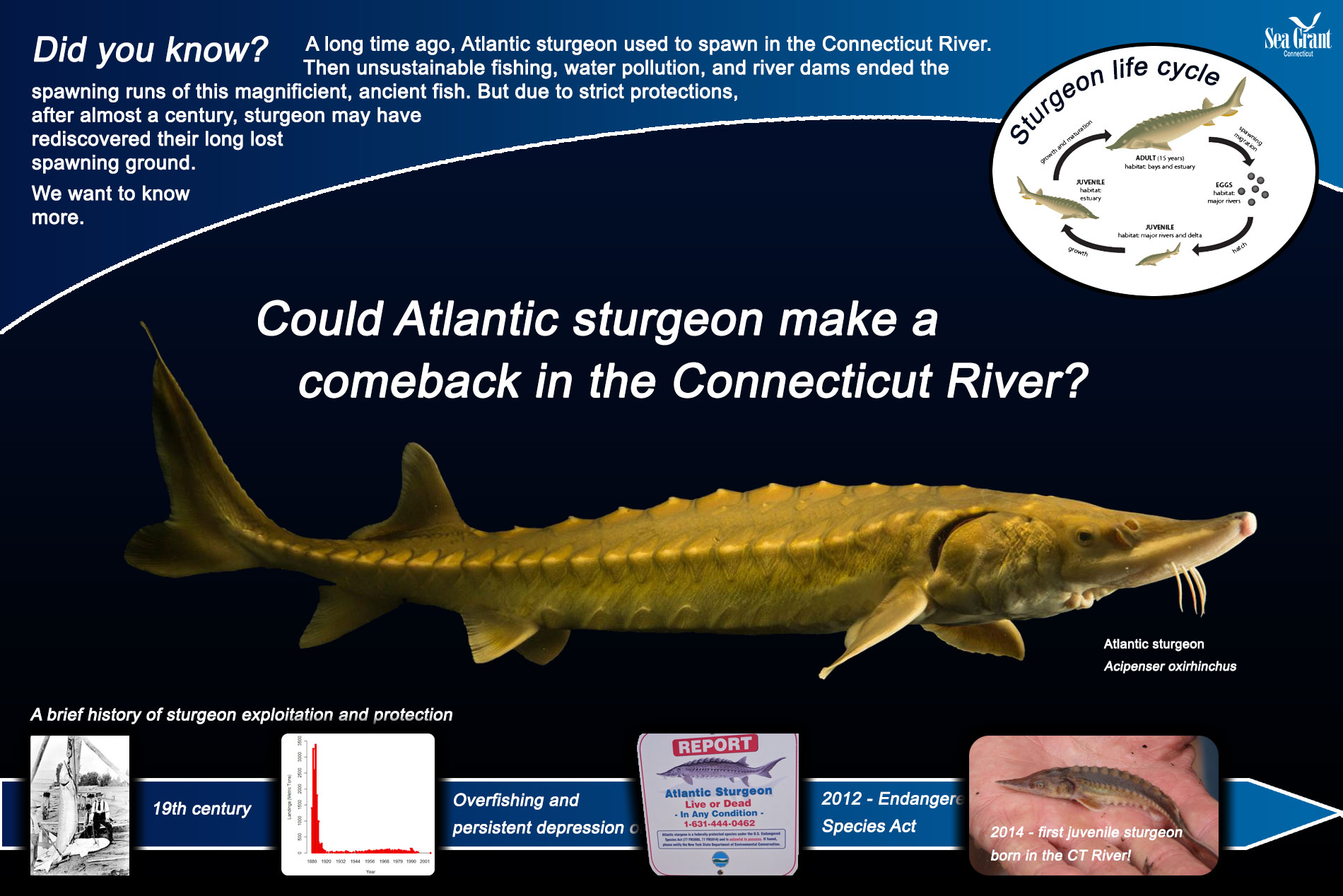1 Feb 2020. We are elated to announce that Connecticut Sea Grant has decided to fund our latest research proposal to study Atlantic sturgeon in Long Island Sound and the Connecticut River! The project is funded for two years under the most recent Omnibus Funding call and will examine the growth and seasonal movement of these magnificent, ancient fish.
The project will fund the Master thesis research of Kelli Mosca, the most recent addition to our lab! After receiving her Bachelors degree from the University of New Haven, Kelli became a dedicated seasonal worker at the Connecticut Department of Energy and Environmental Protection (CTDEEP), where she assisted particularly with the sturgeon monitoring program. This has made her the best possible graduate candidate to work this project. Welcome, Kelli!
To learn more, head over to the project page.
Baumann, H., Savoy, T., Benway, J., and Pacileo, D. 2020. A re-emergent spawning population of Atlantic Sturgeon in the Connecticut River? Combined age analyses and telemetry data will provide new insights. Connecticut Sea Grant Program (NOAA) #R/LR-29, Feb 2020 - Feb 2022 ($150,000)

